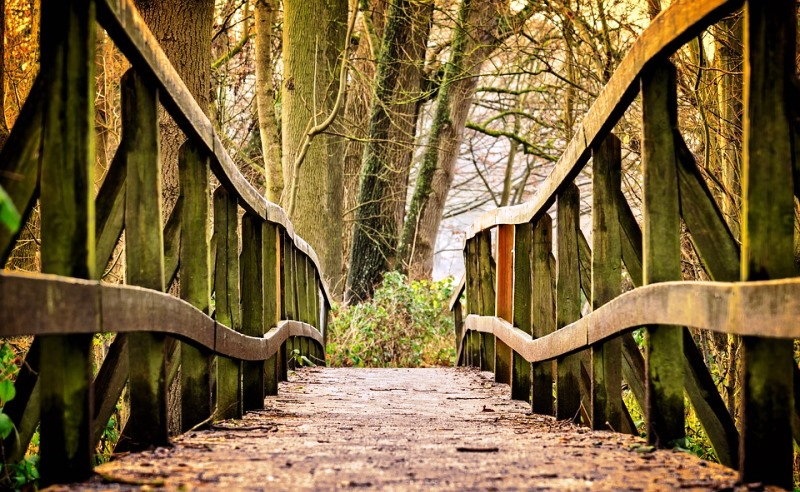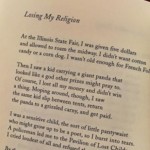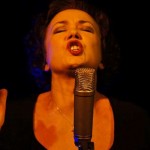Amy Lowell was an American poet. She belonged to the Imagist school of poetry. In 1926, she posthumously won the Pulitzer Prize.
Here are some of the most cherished poems by Amy Lowell.
Suggested read: #NaPoWriMo Here Are Some Of The Best Poems By Wisława Szymborska
Best poems by Amy Lowell
- Woman’s harvest song
I am waving a ripe sunflower,
I am scattering sunflower pollen to the four world-quarters.
I am joyful because of my melons,
I am joyful because of my beans,
I am joyful because of my squashes.
The sunflower waves.
So did the corn wave
When the wind blew against it,
So did my white corn bend
When the red lightning descended upon it,
It trembled as the sunflower
When the rain beat down its leaves.
Great is a ripe sunflower,
And great was the sun above my corn-fields.
His fingers lifted up the corn-ears,
His hands fashioned my melons,
And set my beans full in the pods.
Therefore my heart is happy
And I will lay many blue prayer-sticks at the shrine of Ta-wa.
I will give corn to Ta-wa,
Yellow corn, blue corn, black corn.
I wave the sunflower,
The sunflower heavy with pollen.
I wave it, I turn it, I sing,
Because I am happy.
- White Currants
Shall I give you white currants?
I do not know why, but I have a sudden fancy for this fruit.
At the moment, the idea of them cherishes my senses,
And they seem more desirable than flawless emeralds.
Since I am, in fact, empty-handed,
I might have chosen gems out of India,
But I choose white currants.
Is it because the raucous wind is hurtling round the house-corners?
I see it with curled lips and stripped fangs, gaunt and haunting energy,
Come to snout, and nibble, and kill the little crocus roots.
Shall we call it white currants?
You may consider it as a symbol if you pelase.
You may find them tart, or sweet, or merely agreeable in colour,
So long as you accept them,
And me.
- Two Lacquer Prints
The Emperor’s Garden
ONCE, in the sultry heat of midsummer,
An Emperor caused the miniature mountains in his garden
To be covered with white silk,
That so crowned,
They might cool his eyes
With the sparkle of snow.
Meditation
A wise man,
Watching the stars pass across the sky,
Remarked:
In the upper air the fireflies move more slowly.
Suggested read: Here Are 8 Poems By Kamala Das That Cradle You While Tearing You To Shreds
- 24 Hokku on a Modern Theme
I
Again the larkspur,
Heavenly blue in my garden.
They, at least, unchanged.
II
How have I hurt you?
You look at me with pale eyes,
But these are my tears.
III
Morning and evening–
Yet for us once long ago
Was no division.
IV
I hear many words.
Set an hour when I may come
Or remain silent.
V
In the ghostly dawn
I write new words for your ears–
Even now you sleep.
VI
This then is morning.
Have you no comfort for me
Cold-colored flowers?
VII
My eyes are weary
Following you everywhere.
Short, oh short, the days!
VIII
When the flower falls
The leaf is no more cherished.
Every day I fear.
IX
Even when you smile
Sorrow is behind your eyes.
Pity me, therefore.
X
Laugh–it is nothing.
To others you may seem gay,
I watch with grieved eyes.
XI
Take it, this white rose.
Stems of roses do not bleed;
Your fingers are safe.
XII
As a river-wind
Hurling clouds at a bright moon,
So am I to you.
XIII
Watching the iris,
The faint and fragile petals–
How am I worthy?
XIV
Down a red river
I drift in a broken skiff.
Are you then so brave?
XV
Night lies beside me
Chaste and cold as a sharp sword.
It and I alone.
XVI
Last night it rained.
Now, in the desolate dawn,
Crying of blue jays.
XVII
Foolish so to grieve,
Autumn has its colored leaves–
But before they turn?
XVIII
Afterwards I think:
Poppies bloom when it thunders.
Is this not enough?
XIX
Love is a game–yes?
I think it is a drowning:
Black willows and stars.
XX
When the aster fades
The creeper flaunts in crimson.
Always another!
XXI
Turning from the page,
Blind with a night of labor,
I hear morning crows.
XXII
A cloud of lilies,
Or else you walk before me.
Who could see clearly?
XXIII
Sweet smell of wet flowers
Over an evening garden.
Your portrait, perhaps?
XXIV
Staying in my room,
I thought of the new Spring leaves.
That day was happy.
- The Traveling Bear
GRASS-BLADES push up between the cobblestones
And catch the sun on their flat sides
Shooting it back,
Gold and emerald,
Into the eyes of passers-by.
And over the cobblestones,
Square-footed and heavy,
Dances the trained bear.
The cobbles cut his feet,
And he has a ring in his nose
But still he dances,
For the keeper pricks him with a sharp stick,
Under his fur.
Now the crowd gapes and chuckles,
And boys and young women shuffle their feet in time to the dancing bear,
They see him wobbling
Against a dust of emerald and gold,
And they are greatly delighted.
The legs of the bear shake with fatigue
And his back aches,
And the shining grass-blades dazzle and confuse him.
But still he dances,
Because of the little, pointed stick.
- Towns in Color
I
Red Slippers
Red slippers in a shop-window, and outside in the street, flaws of grey,
windy sleet!
Behind the polished glass, the slippers hang in long threads of red,
festooning from the ceiling like stalactites of blood, flooding the eyes
of passers-by with dripping colour, jamming their crimson reflections
against the windows of cabs and tram-cars, screaming their claret and salmon
into the teeth of the sleet, plopping their little round maroon lights
upon the tops of umbrellas.
The row of white, sparkling shop fronts is gashed and bleeding,
it bleeds red slippers. They spout under the electric light,
fluid and fluctuating, a hot rain – and freeze again to red slippers,
myriadly multiplied in the mirror side of the window.
They balance upon arched insteps like springing bridges of crimson lacquer;
they swing up over curved heels like whirling tanagers sucked
in a wind-pocket; they flatten out, heelless, like July ponds,
flared and burnished by red rockets.
Snap, snap, they are cracker-sparks of scarlet in the white, monotonous
block of shops.
They plunge the clangour of billions of vermilion trumpets
into the crowd outside, and echo in faint rose over the pavement.
People hurry by, for these are only shoes, and in a window, farther down,
is a big lotus bud of cardboard whose petals open every few minutes
and reveal a wax doll, with staring bead eyes and flaxen hair,
lolling awkwardly in its flower chair.
One has often seen shoes, but whoever saw a cardboard lotus bud before?
The flaws of grey, windy sleet beat on the shop-window where there are only
red slippers.
II
Thompson’s Lunch Room – Grand Central Station
Study in Whites
Wax-white –
Floor, ceiling, walls.
Ivory shadows
Over the pavement
Polished to cream surfaces
By constant sweeping.
The big room is coloured like the petals
Of a great magnolia,
And has a patina
Of flower bloom
Which makes it shine dimly
Under the electric lamps.
Chairs are ranged in rows
Like sepia seeds
Waiting fulfilment.
The chalk-white spot of a cook’s cap
Moves unglossily against the vaguely bright wall –
Dull chalk-white striking the retina like a blow
Through the wavering uncertainty of steam.
Vitreous-white of glasses with green reflections,
Ice-green carboys, shifting – greener, bluer – with the jar of moving water.
Jagged green-white bowls of pressed glass
Rearing snow-peaks of chipped sugar
Above the lighthouse-shaped castors
Of grey pepper and grey-white salt.
Grey-white placards: “Oyster Stew, Cornbeef Hash, Frankfurters”:
Marble slabs veined with words in meandering lines.
Dropping on the white counter like horn notes
Through a web of violins,
The flat yellow lights of oranges,
The cube-red splashes of apples,
In high plated `epergnes’.
The electric clock jerks every half-minute:
“Coming! – Past!”
“Three beef-steaks and a chicken-pie,”
Bawled through a slide while the clock jerks heavily.
A man carries a china mug of coffee to a distant chair.
Two rice puddings and a salmon salad
Are pushed over the counter;
The unfulfilled chairs open to receive them.
A spoon falls upon the floor with the impact of metal striking stone,
And the sound throws across the room
Sharp, invisible zigzags
Of silver.
III
An Opera House
Within the gold square of the proscenium arch,
A curtain of orange velvet hangs in stiff folds,
Its tassels jarring slightly when someone crosses the stage behind.
Gold carving edges the balconies,
Rims the boxes,
Runs up and down fluted pillars.
Little knife-stabs of gold
Shine out whenever a box door is opened.
Gold clusters
Flash in soft explosions
On the blue darkness,
Suck back to a point,
And disappear.
Hoops of gold
Circle necks, wrists, fingers,
Pierce ears,
Poise on heads
And fly up above them in coloured sparkles.
Gold!
Gold!
The opera house is a treasure-box of gold.
Gold in a broad smear across the orchestra pit:
Gold of horns, trumpets, tubas;
Gold – spun-gold, twittering-gold, snapping-gold
Of harps.
The conductor raises his baton,
The brass blares out
Crass, crude,
Parvenu, fat, powerful,
Golden.
Rich as the fat, clapping hands in the boxes.
Cymbals, gigantic, coin-shaped,
Crash.
The orange curtain parts
And the prima-donna steps forward.
One note,
A drop: transparent, iridescent,
A gold bubble,
It floats . . . floats . . .
And bursts against the lips of a bank president
In the grand tier.
IV
Afternoon Rain in State Street
Cross-hatchings of rain against grey walls,
Slant lines of black rain
In front of the up and down, wet stone sides of buildings.
Below,
Greasy, shiny, black, horizontal,
The street.
And over it, umbrellas,
Black polished dots
Struck to white
An instant,
Stream in two flat lines
Slipping past each other with the smoothness of oil.
Like a four-sided wedge
The Custom House Tower
Pokes at the low, flat sky,
Pushing it farther and farther up,
Lifting it away from the house-tops,
Lifting it in one piece as though it were a sheet of tin,
With the lever of its apex.
The cross-hatchings of rain cut the Tower obliquely,
Scratching lines of black wire across it,
Mutilating its perpendicular grey surface
With the sharp precision of tools.
The city is rigid with straight lines and angles,
A chequered table of blacks and greys.
Oblong blocks of flatness
Crawl by with low-geared engines,
And pass to short upright squares
Shrinking with distance.
A steamer in the basin blows its whistle,
And the sound shoots across the rain hatchings,
A narrow, level bar of steel.
Hard cubes of lemon
Superimpose themselves upon the fronts of buildings
As the windows light up.
But the lemon cubes are edged with angles
Upon which they cannot impinge.
Up, straight, down, straight – square.
Crumpled grey-white papers
Blow along the side-walks,
Contorted, horrible,
Without curves.
A horse steps in a puddle,
And white, glaring water spurts up
In stiff, outflaring lines,
Like the rattling stems of reeds.
The city is heraldic with angles,
A sombre escutcheon of argent and sable
And countercoloured bends of rain
Hung over a four-square civilization.
When a street lamp comes out,
I gaze at it for fully thirty seconds
To rest my brain with the suffusing, round brilliance of its globe.
V
An Aquarium
Streaks of green and yellow iridescence,
Silver shiftings,
Rings veering out of rings,
Silver – gold –
Grey-green opaqueness sliding down,
With sharp white bubbles
Shooting and dancing,
Flinging quickly outward.
Nosing the bubbles,
Swallowing them,
Fish.
Blue shadows against silver-saffron water,
The light rippling over them
In steel-bright tremors.
Outspread translucent fins
Flute, fold, and relapse;
The threaded light prints through them on the pebbles
In scarcely tarnished twinklings.
Curving of spotted spines,
Slow up-shifts,
Lazy convolutions:
Then a sudden swift straightening
And darting below:
Oblique grey shadows
Athwart a pale casement.
Roped and curled,
Green man-eating eels
Slumber in undulate rhythms,
With crests laid horizontal on their backs.
Barred fish,
Striped fish,
Uneven disks of fish,
Slip, slide, whirl, turn,
And never touch.
Metallic blue fish,
With fins wide and yellow and swaying
Like Oriental fans,
Hold the sun in their bellies
And glow with light:
Blue brilliance cut by black bars.
An oblong pane of straw-coloured shimmer,
Across it, in a tangent,
A smear of rose, black, silver.
Short twists and upstartings,
Rose-black, in a setting of bubbles:
Sunshine playing between red and black flowers
On a blue and gold lawn.
Shadows and polished surfaces,
Facets of mauve and purple,
A constant modulation of values.
Shaft-shaped,
With green bead eyes;
Thick-nosed,
Heliotrope-coloured;
Swift spots of chrysolite and coral;
In the midst of green, pearl, amethyst irradiations.
Outside,
A willow-tree flickers
With little white jerks,
And long blue waves
Rise steadily beyond the outer islands.
Suggested read: 7 Best Poems By William Blake That Only Gained Popularity After His Death
This is all we have on today’s post on the best poems by Amy Lowell. This is, however, not an exhaustive list, and if we have missed out on some of your favorites, then please feel free to add them in the comment section below.
Until next time!
Featured image source: Pixabay, under Creative Commons License













